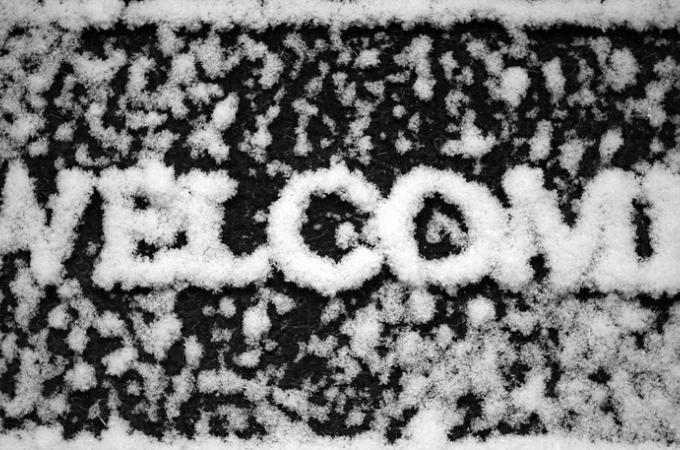Welcoming the stranger
If you've been a carpooling parent, you've paid your dues.
I paid mine with three kids in Catholic school. Years of soccer and hockey practices left my van with a lingering smell of sweaty socks. One day, with a carload of squabbling kids, I gently bumped the car ahead of me at a red light as I tried to break up a back-seat dispute.
Thankfully, as I started to get out of the car, the driver pulled away, oblivious to my carpool chaos.
If you have stories like these, you'll appreciate my friend Pam. Pam lives in a great 115-year-old house in an old neighborhood in my city. Her three kids are in three different schools and she transports them all to and fro.
But for Pam, who belongs to my faith-sharing community, her car and her family life do not exist in an isolated bubble.
Pam's family volunteers with a refugee resettlement program called First Friends. Nebraska has three resettlement programs statewide, and according to the Lincoln Journal Star, more than 5,000 refugees have gone through rigorous screening and been accepted since October 2009.
Pam was assigned a Sudanese family. There's no set agenda for what it means to be a "first friend." You simply do what you can to be a good neighbor to a family experiencing the wild, emotionally charged adjustment to a new life in a large American city after moving from a remote refugee camp.
For Pam, that meant socializing and hosting a first American birthday party for the oldest daughter of the Sudanese family. She also added her friends to her already busy carpool schedule.
Here's how that works: Besides taking her kids to school, she drives the mile and a half to her Sudanese friends' apartment, picks up their daughter and delivers her to another school.
One winter day, she noticed four Burmese boys from the apartment building walking with their mom toward the same school.
"It was a frigid morning, and I noticed they were all wearing pajama bottoms and clothes obviously too small. Their mom was wearing flip-flops."
Pam opened the car door. "Hop in," she instructed. The Burmese woman, who spoke no English, was on her cellphone the whole time.
"Probably telling someone she'd encountered a crazy American and wasn't sure where she was being taken," laughed Pam.
A friend helped collect good hand-me-downs for the boys, and now Pam takes them to school each day as well. Then, Pam drives back, picks up the Sudanese mom and her preschool daughters, plus the Burmese mom and her baby, delivers them to English lessons, then delivers the Sudanese father to the school where he is learning English and job skills.
Later in the day, she does it all in reverse.
At this point in Pam's rundown of her schedule, my car full of hockey players seemed like a walk in the park.
Why does she do it?
"Why would I not? I have deep compassion for what they're going through," said Pam. "They're coming to a place completely foreign and escaping horrors. I'm making a small dent in helping them ease into this situation."
Pam has traveled extensively in Latin and South America. Unlike many in our current political climate, she sees the world through a broader lens.
"I don't see it as 'us versus them,'" she says.
Neither did Jesus. I was a stranger and you welcomed me. If we look around, can we all find some opportunity to make a "small dent" in welcoming the stranger?
- Effie Caldarola is a columnist with the Catholic News Service.



















